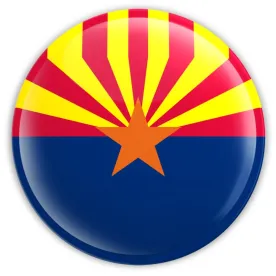As Arizona employers prepare for 2020, key minimum wages and exempt salary levels under city, state, and federal law will go into effect. Additionally, employers will want to remain aware of potential legislation and/or voter propositions on recreational marijuana and raises in the healthcare industry in Arizona.
Arizona and Flagstaff Minimum Wage Increases
Under Arizona’s Fair Wages and Healthy Families Act, the Arizona state minimum wage will once again increase on January 1, 2020. All non-tipped employees must be paid at least $12.00 per hour. Additionally, the Flagstaff minimum wage will increase to $13.00 per hour on January 1, 2020.
Although Flagstaff is currently the only Arizona city with a minimum wage higher than Arizona state’s requirement, other cities recently received legal clearance to follow Flagstaff’s lead. In 2019, the Arizona Supreme Court denied review of the Arizona Court of Appeals, Division One, decision in Meyer v. Arizona, in which the court of appeals held that cities and municipalities in Arizona may enact their own employee benefits ordinances. As the law currently stands, it appears the Arizona legislature does not have the authority to prohibit cities and municipalities from enacting laws such as local minimum wage ordinances.
U.S. Department of Labor Overtime Rule
The U.S. Department of Labor has finalized the new overtime rule, which will go into effect on January 1, 2020. The new overtime salary threshold is predicted to affect approximately 1.3 million American workers. The new overtime rule increases the “standard salary level” from $455 to $684 per week ($35,568 per year). Employers may use nondiscretionary bonuses and incentives to satisfy up to 10 percent of the standard salary level. The new overtime rule also increases the salary level for highly compensated employees from $100,000 to $107,432.
Recreational Marijuana Voter Initiative and Possible Legislation
Arizona narrowly voted against legalizing recreational marijuana in 2016, but a new voter initiative will appear on the 2020 ballot if 237,645 required signatures are received by July 2, 2020. If enacted, the Smart and Safe Arizona Act voter initiative would make recreational marijuana legal for Arizonans who are at least 21 years old. The Smart and Safe Arizona Act would require the Arizona Department of Health Services to regulate recreational marijuana, and revenue raised from the 16 percent excise tax would help fund community colleges and public safety. The Smart and Safe Arizona Act offers no explicit protections for employees but instead states that the law will “not restrict the rights of employers to maintain a drug-and-alcohol-free workplace.”
Another pro-cannabis group is attempting to get the competing Small Business Liberty Act on the 2020 Arizona ballot through the legislature, instead of through an initiative measure with requisite signatures. Like the Smart and Safe Arizona Act, the Small Business Liberty Act would legalize recreational marijuana. But it would also increase the number of licenses available for dispensaries. The Small Business Liberty Act would require the Board of Liquor Control to regulate marijuana, and the legislature would be free to set the excise tax amount. The Small Business Liberty Act will need to pass both houses of the Arizona legislature to make it on the ballot.
Raises for Non-Managerial Healthcare Workers Voter Initiative
An advocacy group funded by Service Employees International Union-United Healthcare Workers West (SEIU-UHW) filed a voter initiative titled the Stop Surprise Billing and Protect Patients Act. This voter initiative contains numerous provisions related to patient rights and billing. If passed, the act would also raise the minimum wage for all “direct care hospital workers” by five percent on the effective date of the act. The minimum wage for private, non-managerial healthcare employees would continue to increase by 5 percent a year for 3 more years, resulting in a 20 percent total increase. Like the recreational marijuana voter initiative, the healthcare initiative needs to receive 237,645 signatures by July 2, 2020, to reach the November ballot.




 />i
/>i
